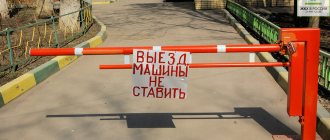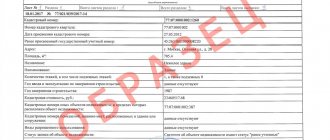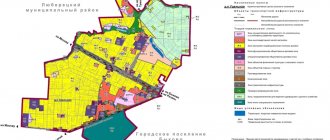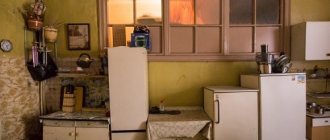In 2021, new rules apply for recognizing an apartment building as unsafe and subject to demolition or reconstruction. The procedure for resettlement from emergency housing has also changed. Legislator:
— formulated the basis on which the apartment building is recognized as unsafe and subject to demolition or reconstruction; — supplemented the rules for working with documents that the local self-government body receives and prepares after assessing and inspecting a house; — provided for new mechanisms for resettlement from emergency housing; — determined for which emergency buildings the decision on demolition or reconstruction is made by the local self-government body; — established a new procedure for calculating the amount of compensation for seized premises.
Document: New rules for recognizing a house as unsafe are in Government Decree No. 1535 dated November 29, 2019. It amended the regulations approved by Government Decree No. 47 dated January 28, 2006 (hereinafter referred to as Regulation No. 47)
It became clear on what basis to recognize apartment buildings as emergency
According to the new rules, an apartment building is recognized as unsafe and subject to demolition or reconstruction if its load-bearing building structures or the entire house as a whole are in emergency technical condition.
There are two signs of emergency technical condition of building structures.
1. Damage and deformation, which indicate the exhaustion of the bearing capacity and the danger of collapse of an apartment building.
2. Rolls, which can cause the house to lose stability.
Both characteristics are indicated in the new version of paragraph 34 of Regulation No. 47.
Grounds for recognizing housing as unsafe
The grounds for recognizing a residential property as unsafe are set out in Decree of the Government of the Russian Federation No. 47 of 2006 (Chapter 3).
| No. | Premises considered dangerous and subject to demolition | Comments |
| 1 | Premises located under a garbage chute or waste disposal device | An apartment is considered unsafe if under it or in an adjacent room there is a device for flushing or cleaning the garbage chute |
| 2 | Premises with windows overlooking noisy traffic routes, if the noise level cannot be reduced | The maximum permissible noise level is 55 dB during the day and 45 dB at night |
| 3 | Premises located in houses that suffered from natural disasters and cataclysms | The main condition is the unprofitability of repair work |
| 4 | Objects located close to overhead power lines | The maximum voltage value cannot exceed 1 kV/m, and the induction value cannot exceed 50 µT at an industrial frequency of 50 Hz |
| 5 | Objects located in the zone of possible man-made disasters | If it is impossible to protect the residential premises from destruction |
| 6 | Objects located in the zone of landslides, mudflows, avalanches or subject to flooding | An exception is the situation when flooding can be prevented with the help of engineering structures |
| 7 | Premises located in areas with negative sanitary and epidemiological indicators (electromagnetic fields, noise, vibration), if the indicators exceed the standards for citizens’ residence | These also include facilities located in areas of transport and engineering infrastructure, production and sanitary protection zones. |
| 8 | Apartment buildings with deformed foundations | These also include objects with deformed walls and wooden structures |
| 9 | Objects with a significant percentage of physical wear and tear, if this has led to the impossibility of safe use for residential purposes | If the level of reliability of supporting structures is significantly reduced, as a result of which strength and reliability are reduced |
Important! In everyday life, it is believed that housing can be considered unsafe due to its age. However, in practice, the age of the residential premises has no relation to establishing the breakdown of the apartment. The main sign is wear and tear.
In addition, the following indicators are not grounds for recognizing an object as dangerous:
- Lack of an elevator and garbage chute in an apartment building with more than 5 storeys.
- Compliance of the space-planning solution with outdated regulations, if this does not interfere with the normal operation of the facility.
- Lack of water supply and sewerage in the house, up to 2 storeys.
The commission and the LSG body set deadlines for working with documents
The legislator established more specific rules for the work of the commission for assessing and examining apartment buildings. It is she who decides whether there are grounds to recognize the house as unsafe and subject to demolition or reconstruction. The commission sets out its conclusions in the conclusion. It is drawn up on the form from Appendix No. 1 to Regulation No. 47.
Sample 1—at the end of the article.
The commission sends two copies of the conclusion to the local self-government body. According to the new rules, she must do this within three days after she issued the conclusion. In the old version of Regulation No. 47, the deadline was not specified.
Sample 2 is at the end of the article.
After the LSG body has received the commission’s conclusion, it must make a decision on the house. Reflect it in a municipal act (see sample 2). If you have recognized the apartment building as unsafe and subject to demolition or reconstruction, send the decision, along with the commission’s conclusion, to the applicant and to the municipal housing control body at the location of the house. The deadline is five days from the day you made the decision. It is not necessary to send paper documents. You can send them electronically via the Internet, including through a single or regional portal of state and municipal services.
If the commission does not want to recognize the apartment building as uninhabitable
The only solution in this situation will be to appeal the conclusion in court . No other government agencies will help. To do this, you need to contact the district court within 3 months after receiving the final decision .
In addition, it is necessary to collect all available documents, including a copy of the commission’s conclusion. The statement of claim is written in accordance with the rules listed in Article 131 of the Code of Civil Procedure of the Russian Federation. In general, this is a simple process, but the time frame for appealing is very short, so you need to act quickly.
In conclusion, it must be said that the procedure for recognizing a house as unsafe is a very labor-intensive and complex procedure that requires the collection of a considerable number of documents. The optimal solution here would be to unite the efforts of all residents of the house , and also to use, if possible, all options for action, including the court.
First you need to develop an action algorithm , as well as involve a third-party organization that will conduct an initial examination of the house. The result will depend both on the actual state of the matter and on the actions of the residents themselves.
LSG bodies now make decisions not only on municipal buildings
Local self-government bodies now have the authority to declare residential premises of not only municipal, but also private housing stock unsuitable for habitation. The same rule is established for apartment buildings: recognizing a house as unsafe and subject to demolition or reconstruction is almost always the authority of the local self-government body. An exception is MKD, all residential premises in which are owned by the Russian Federation or the region. Previously, these powers of the local government body extended only to residential premises and apartment buildings that belong to the municipal housing stock.
Recognition of an individual (private) house as unsuitable for habitation
112 10
Posted by: Egorov Konstantin Mikhailovich Real estate, rental of premises, privatization, rent Articles 10.24.2011
Resolution of the Government of the Russian Federation dated January 28, 2006 N 47 approved and is in force the Regulations on recognizing premises as residential premises, residential premises unsuitable for habitation and an apartment building as unsafe and subject to demolition or reconstruction (hereinafter - Regulations dated January 28, 2006 N 47).
Clause 2 of the Regulations dated January 28, 2006 No. 47 states that this Regulation applies to residential premises in use, regardless of the form of ownership, located on the territory of the Russian Federation.
Based on the literal interpretation of this paragraph, it follows that Regulation No. 47 of January 28, 2006 also applies to individual (private) households owned by both citizens and legal entities.
In accordance with clause 5 of the Regulations of January 28, 2006 N 47, a residential building is recognized as a residential building - an individually defined building, which consists of rooms, as well as premises for auxiliary use, intended to satisfy citizens' household and other needs related to their residence in him.
According to clause 8 of the Regulations of January 28, 2006 No. 47, a local government body has the right to make a decision on recognizing private residential premises located on the relevant territory as suitable (unsuitable) for citizens to live in and delegate to the commission the authority to assess the compliance of these premises with those established in this Regulation requirements and to make a decision on recognizing these premises as suitable (unsuitable) for citizens to live in.
In this article we will consider the legal consequences of declaring an individual (private) house unfit for habitation both for the owners themselves - citizens, and for the local government.
In accordance with clause 8, part 1, art. 14 of the Housing Code of the Russian Federation, the powers of local self-government bodies in the field of housing relations include recognizing, in accordance with the established procedure, residential premises of the municipal housing stock as unfit for habitation.
In accordance with paragraph 4 of Art. 15 of the Housing Code of the Russian Federation, a residential premises may be declared unfit for habitation on the grounds and in the manner established by the federal executive body authorized by the Government of the Russian Federation.
The recognition of private residential buildings as unfit for habitation is carried out by a decision of the interdepartmental commission not only on the basis of Regulations of January 28, 2006 N 47, but also on the basis of its local regulations on recognizing the premises as residential premises, residential premises unsuitable for habitation and an apartment building as unsafe and subject to demolition or reconstruction, which, as a rule, also approves the composition and powers of the interdepartmental commission to assess the suitability (unsuitability) of residential buildings (premises) for citizens to live in.
An interdepartmental commission of a local government body, after examining documents indicating the technical condition of an individual residential building and living conditions in it, has the right to decide that a private residential building is unsuitable or suitable for habitation. If a private residential building is recognized as unsuitable for habitation due to the technical condition of the house or on other grounds established by Regulations of January 28, 2006 No. 47, the local government body will have corresponding responsibilities, and citizens who are the owners of a private house will have the rights provided for by the housing code. legislation, and first of all this is the right to provide residential premises under a social tenancy agreement out of turn in accordance with Art. 57 Housing Code of the Russian Federation.
According to clause 1, part 2, art. 57 of the Housing Code of the Russian Federation, out of turn, residential premises under social tenancy agreements are provided to citizens whose residential premises are recognized in the prescribed manner as unfit for habitation and are not subject to repair or reconstruction.
It would seem that everything is fine, the local government body recognizes a private house as unfit for habitation, and the citizen, on the basis of clause 1, part 2, art. 57 of the Housing Code of the Russian Federation, residential premises are provided out of turn under a social tenancy agreement, and based on the provision norm, since a private residential building is recognized in the prescribed manner as unfit for habitation and cannot be repaired or reconstructed.
The very concept of “out of turn” also means that the provision of residential premises out of turn does not imply the inclusion of a citizen in any queue, and the right of a citizen to receive residential premises out of turn is not made dependent on the presence or absence of other persons also entitled to receive housing out of turn. Therefore, this right must be exercised regardless of the presence or absence of other persons registered to improve housing conditions, and the time of their registration <1>. Simply put, a citizen must be provided with housing almost immediately; as we know, this practically never happens.
———————————
<1> Review of legislation and judicial practice of the Supreme Court of the Russian Federation for the third quarter of 2007: approved by the Resolution of the Presidium of the Supreme Court of the Russian Federation dated November 7, 2007.
And perhaps everything would have been so if not for one word in paragraph 8 of the Regulations of January 28, 2006 No. 47 - “has the right.”
Let us note once again that according to clause 8 of the Regulations of January 28, 2006 No. 47, the local government body has the right to make a decision on recognizing private residential premises located on the relevant territory as suitable (unsuitable) for citizens to live in.
Thus, based on the literal interpretation and meaning of paragraph 8 of the Regulations of January 28, 2006 No. 47, it does not follow that the local government body is obliged to make the decision specified therein on recognizing private residential buildings and/or premises located on the relevant territory as suitable ( unsuitable) for citizens to live in <2>.
———————————
<2> Resolution of the Federal Antimonopoly Service of the Volga-Vyatka District dated July 15, 2009 in case No. A79-6259/2008.
A local government body will almost always refuse to recognize an individual (private) house as unfit for habitation if this may violate the interests of the local government body in the field of housing rights and obligations or arise obligations that will have to be fulfilled on its own and at the expense of the municipal budget.
We will show below what such obligations may be expressed in.
After a residential premises and/or private house is declared unfit for habitation (hereinafter referred to as dilapidated), the local government body and the citizen have a number of rights and obligations, including mutually dependent ones.
In accordance with clause 1, part 2, art. 57 of the Housing Code of the Russian Federation, out of turn, residential premises under a social tenancy agreement are provided to citizens whose residential premises are recognized in the prescribed manner as unfit for habitation and are not subject to repair or reconstruction.
Thus, after a citizen’s house (residential premises) is declared unfit for habitation and not subject to repair and reconstruction in accordance with clause 1, part 2, art. 57 of the Housing Code of the Russian Federation, the right arises, and the local government body has the obligation to accept such a citizen and his family for priority provision of residential premises under a social tenancy agreement.
Thus, the official recognition of a residential building (residential premises) as unsuitable for habitation and not subject to reconstruction gives rise to the obligation of the local government body to accept the citizen and his family on the waiting list outside the next provision of residential premises under a social tenancy agreement and, accordingly, to provide such residential premises.
Registration of a citizen owner of a private house for housing registration under Art. 57 of the Housing Code of the Russian Federation and the recognition of a house as dilapidated do not deprive him of the right of ownership of this house and do not deprive him of the right of ownership or other property right to the land plot occupied by the house and necessary for its maintenance.
After providing a citizen with residential premises in the form of an apartment under a social tenancy agreement in an extraordinary manner on the grounds of clause 1 of Part 2 of Art. 57 of the Housing Code of the Russian Federation or providing him with any monetary subsidy under one of the federal or regional housing programs, a citizen as the owner of a dilapidated residential building in accordance with the current housing and civil legislation does not have an obligation to transfer the dilapidated house into municipal or state ownership, and the citizen, accordingly, as the owner of a dilapidated house and land plot, he has the right to dispose of them at his own discretion or keep them in his own property.
Since a citizen’s house, recognized as dilapidated, and the land plot under it are not confiscated by the local government body, the obligation to hand over such a house and land plot under it is not provided for by law, the citizen has the right to sell or make another civil transaction with the dilapidated house and land plot .
In turn, the new owner, after purchasing a private house unsuitable for habitation, may also have the right to an extraordinary provision of residential premises from the local government in accordance with clause 1, part 2, art. 57 of the Housing Code of the Russian Federation, since according to the Housing Code of the Russian Federation, it does not matter whose fault the household in which the owner’s family lives has become unfit for habitation, as well as the time of receipt of the certificate of registration of ownership of the residential premises <3> .
———————————
<3> Ruling of the Supreme Court of the Russian Federation of October 27, 2009 N 44-B09-41.
Such a “circle of home ownership” from owner to owner, as we understand, of course, cannot be arranged by a local government body.
The only way to stop it is the demolition of such a private house or its seizure together with the land plot into municipal ownership in accordance with the norms of housing and civil legislation, subject to compensation for the market value.
However, with such a seizure, the local government body is obliged to pay the market value of not only the house, but also the land plot to the owner, which, naturally, cannot suit the local government body, especially considering that it is still in accordance with Art. 57 of the Housing Code of the Russian Federation is obliged to provide residential premises under a social tenancy agreement according to the provision standards, based on the number of family members registered in a house unsuitable for habitation.
So it turns out that the owner not only receives residential premises out of turn from the local government, but also the unsuitable house and the land plot underneath remain in his ownership, which he, as the owner, can dispose of at his own discretion (sell, exchange, donate and etc.) or it can be confiscated from him by a local government body according to the procedure outlined above.
Buying out a given house and the land plot underneath it for a local government body is often simply unprofitable and impractical, since such land plots are usually small in size and do not represent any economic or commercial interest for either the local government body or the potential developer.
At the same time, even if, when making a decision, the local government obliges the owner to demolish a private house unsuitable for habitation, the owner may simply not do this, firstly, simply due to the lack of financial resources for this, secondly, he is the owner, and It is almost impossible to oblige him to demolish (destroy) his property in accordance with civil and housing legislation.
Based on the above, the local government body actually faces the same responsibilities to the owner of an uninhabitable house, while the citizen (owner) has practically the same rights.
In this case, the local government body will naturally take advantage of the fact that clause 8 of the Regulations of January 28, 2006 No. 47 enshrines only its right, and not its obligation, to make a decision on recognizing private residential premises located on the relevant territory as suitable ( unsuitable) for citizens to live in, especially since there are many legal grounds for this.
In accordance with Art. 209 of the Civil Code of the Russian Federation, the owner has the rights to own, use and dispose of his property. The owner has the right, at his own discretion, to take any actions in relation to his property that do not contradict the law and other legal acts and do not violate the rights and legally protected interests of other persons, including alienating his property into the ownership of other persons, transferring to them, while remaining the owner, the rights possession, use and disposal of property, pledge property and encumber it in other ways, dispose of it in any other way.
According to Art. 210 of the Civil Code of the Russian Federation, the owner bears the burden of maintaining the property belonging to him, unless otherwise provided by law or contract.
In accordance with paragraph 3 of Art. 30 of the Housing Code of the Russian Federation, the owner of a residential premises bears the burden of maintaining this premises and, if this premises is an apartment, the common property of the owners of premises in the corresponding apartment building, and the owner of a room in a communal apartment also bears the burden of maintaining the common property of the owners of rooms in such an apartment, unless otherwise provided federal law or treaty.
According to paragraph 4 of Art. 30 of the Housing Code of the Russian Federation, the owner of a residential premises is obliged to maintain the premises in proper condition, to prevent mismanagement of them, to maintain the residential premises in proper technical and sanitary condition, to respect the rights and legitimate interests of neighbors, the rules for the use of residential premises, as well as the rules for maintaining the common property of the owners premises in an apartment building.
Thus, Art. 210 Civil Code of the Russian Federation and Art. 30 of the Housing Code of the Russian Federation in an imperative form indicate the costs and efforts that the owner must bear and undertake in relation to the property he owns, including the owner of a private house. Thus, the legislator clearly determines that in addition to the owner having certain rights, he is also assigned quite specific responsibilities (burden) for the maintenance of his residential premises or residential building.
Property, which is a subject of ownership and serves to satisfy the interests of the owner, in itself needs to be taken care of, maintained in a suitable condition, eliminated various threats and dangers emanating from certain qualities of things, etc.
The implementation of all these measures is entrusted to the owner and is considered as a natural consequence of ownership.
Legally, the burden of property is expressed, for example, in the obligations for current and major repairs of property (house, building, etc.), its insurance, presentation for inspection, and registration.
The legal burden of ownership imposes on the owner the obligation to seek (find, provide) the necessary financial resources for the timely execution of current and major repairs of his residential building or residential premises in order to prevent the residential premises in which people permanently live and stay from becoming uninhabitable and life-threatening people are in a condition in which living in such a room would be simply dangerous and impossible.
From the above it follows that the owner of a residential building (residential premises), in accordance with the current civil and housing legislation, has the obligation not only to properly care for his real estate (house, building), its maintenance, timely current and major repairs, but also the obligation to find the necessary financial resources for this.
The legislator's initiative on the possibility of declaring individual (private) houses unfit for habitation, which is primarily aimed at improving the housing rights of citizens who do not have their own, primarily financial, opportunities for this, unfortunately, at the legislative level remains only an initiative, not supported by absolutely anything.
New mechanisms for resettlement from dilapidated houses have emerged
Document: Federal Law No. 473-FZ dated December 27, 2019 amended the Housing Code and Federal Law No. 185-FZ dated July 21, 2007 “On the Fund for Assistance to the Reform of Housing and Communal Services”
If an apartment building is recognized as unsafe, all residential premises in it become unsuitable for living (clause 4, article 15 of the Housing Code). The residents need to be resettled. Law No. 473-FZ preserved all existing mechanisms for resettlement from emergency housing and introduced new ones.
Regional authorities may introduce additional housing support measures for apartment owners in emergency apartment buildings. For example, the region can provide such citizens with subsidies to offset part of the costs of purchasing new housing. Those who own an apartment in a dilapidated building and decide to buy a new one on credit can count on compensation for mortgage loans. At the same time, it will be possible to use federal budget funds to subsidize preferential mortgages and create flexible housing stock.
New support measures will not be available to all residents of houses recognized as emergency in accordance with the procedure established by law. On the date the apartment building is recognized as unsafe, the owner should not own any other residential premises suitable for permanent residence. The region will not provide support to those who rent another residential premises under a lease agreement or occupy it on a social tenancy basis.
Housing has been declared uninhabitable - what next?
It is important that the housing is not only recognized as unsuitable, but also that it is taken into account that it is also unsuitable for repair and reconstruction. After receiving the appropriate court opinion or commission decision, citizens who own housing under a social rental agreement:
- register together with those who need improved living conditions (this happens at their place of residence, they contact the municipality);
- seek recognition of them as low-income (we need documents such as a certificate of family composition, copies of apartment cards, copies of a personal bank account, documents for housing, certificates from studies, work, papers confirming the value of property).
Usually resettlement takes place within 12 months. But sometimes citizens are resettled as quickly as possible. This usually happens if the house is declared unsafe after a severe fire, earthquake, or discovery that substances harmful and dangerous to human health were used in its construction.
Apartment owners do not need to take any action; they receive new housing.
We will have to pay more for residential premises seized for municipal needs
Note: Follow the new rule also in cases where you withdraw housing in connection with the seizure of the land plot on which the house is located
When local authorities resettle a dilapidated building, they seize the housing for municipal needs. In this case, the owners of residential premises must be paid compensation. Include in this amount the market value of not only the premises and common property in the apartment building, but also the land plot on which the house is located. This requirement is specified in the new edition of Part 7 of Article 32 of the Housing Code. An increase in the amount of compensation is an additional measure of support for citizens who are being relocated from emergency housing stock.
How is dilapidated housing different from emergency housing?
Thus, the mere fact of deterioration of a building is not a sufficient basis for the building to be recognized as unsafe or unfit for habitation. The wear of the structure can be from 70-80% and even reach 90%. Housing is considered unsafe if there is a risk of the house collapsing and it is dangerous to stay in it. Such a house may have complete or partial destruction of the foundation, load-bearing walls, roof and other elements of the building. And housing will be considered dilapidated if the structure only shows wear and tear, but at the same time its load-bearing elements retain strength.
Question answer
Will Khrushchev buildings be demolished throughout the country?
We secured the right of residents of emergency buildings to temporary housing from the flexible fund
If it is dangerous to stay in a dilapidated building, its residents have the right to receive temporary housing from the flexible fund at the municipal or regional level. This guarantee did not previously apply to residents of houses recognized as unsafe. Now, in such a situation, the local self-government body must allocate temporary housing at the first request of a citizen.
Provide temporary housing from a flexible fund for a period of no more than two years. During this time, you must pay the citizen compensation to purchase a new apartment or provide him with new housing.
We determined the conditions for financial support for relocation from dilapidated houses
It is now possible to spend subsidies from budgets of all levels to solve the problem of emergency housing. The law allows them to be distinguished:
— residents of dilapidated buildings — for the purchase of new housing; — companies that implement projects for the development of built-up areas or integrated development of territories; - citizens who have the right to receive compensation for seized premises.
First of all, it is envisaged to provide subsidies to developers who have concluded agreements with local self-government bodies on the integrated development of built-up areas. The subsidy compensates for the costs of fulfilling obligations to create and transfer residential premises to municipal ownership for citizens resettled from dilapidated houses. Such a subsidy should not exceed 25 percent of the standard resettlement cost. It is calculated based on the total area of residential premises from which people were relocated and the standard cost per square meter.
The Housing and Communal Services Reform Assistance Fund will also provide funds for resettlement from dilapidated housing. If a region wants to receive financial support from the fund, it should not provide or use land plots on which emergency housing stock apartment buildings were located. An exception is cases when the site is provided for certain objects: for example, public utilities and social services, healthcare, education. Land plots that are cleared from dilapidated buildings at the expense of the federal budget can only be used for the construction of social facilities or for the creation of public spaces.
The region distributes the funds received from the fund among municipalities on whose territory there are unsafe houses. Municipalities, as usual, can learn about the amount of shared funding for relocation from dilapidated housing from local budget funds from the program of their region. But previously this volume was set for the entire period of the program. Now - only for the current and two subsequent years.
The procedure for recognizing housing as unsafe
Responsibilities for recognizing residential facilities as unsafe are assigned to local governments. Each municipality is obliged to form a specialized commission under the housing committee of the local administration.
The composition and work of the interdepartmental commission are approved by a resolution of the local government body.
The powers of the interdepartmental commission for recognizing housing as unsafe include:
- acceptance of documents;
- defining a list of additional documentation;
- recruitment of experts;
- inspection of the facility;
- making a decision to recognize the house as unsafe;
- refusal to assign an emergency status to an object.
The initiation of the process rests with the residents or owners. Local government specialists are not required to independently inspect each house without the residents’ application.
Procedure:
- Collection of documentation.
- Contacting the authorized body.
- Receipt of the act.
What documents are needed for registration?
The preparation of documents for recognition of housing as unsafe is established by local regulations of the municipality. The general list is contained in Decree of the Government of the Russian Federation No. 47 of 2006 (Article 45).
List of documentation:
- A copy of the applicant’s title document for housing. The document is provided if the right is not registered in the Unified State Register of Real Estate. Otherwise, the document is requested by the commission specialist at Rosreestr independently.
- A copy of the applicant's civil passport.
- Application for assignment of status to residential premises.
- Conclusion of the authorized organization that conducted the examination.
- Official complaints from residents about living conditions to the competent authorities.
- Certificate of recognition of the house as unsafe.
- Technical plan.
Contacting the authorized body
The owner or tenant of a residential premises can submit an application individually or collectively.
Ways to contact the authorized body:
- personally;
- by mail;
- through the MFC;
- through a representative;
The municipal service of assigning an object the status of emergency housing is provided free of charge. The period for its provision cannot exceed 30 days.
If documents are sent by mail, then it is necessary to attach a list of the attachments of the documents being sent.
If the application is submitted through a representative, then he must have documents confirming his authority:
- notarized power of attorney (representative of an adult citizen);
- birth certificate, certificate of guardian, trustee, adoptive parent (if the owner is a minor);
- resolution on the appointment of a guardian (if the owner is incapacitated).
Receiving the act
The result of contacting the authorized body is:
- issuance of an inspection report on the applicant’s living conditions;
- issuance of an act recognizing the object as unsafe or refusal to assign status.
The method of issuing the result is chosen by the applicant when filing a claim.
Possible options:
- personally;
- by mail;
- through the MFC;
- through a representative.
From the moment a positive response is received, owners and tenants of residential premises have the right to be resettled in safe facilities under the housing program.









